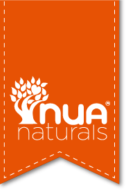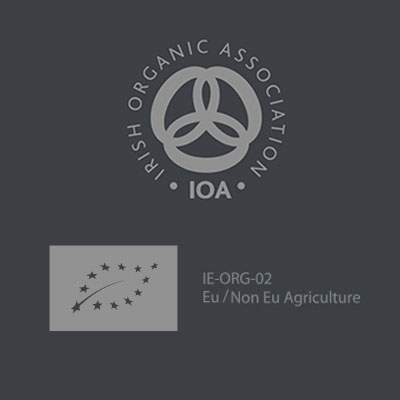Why proteins? – To stay healthy, consuming enough proteins is essential! Proteins are involved in muscle functioning, body cell survival, transport of nutrients and many more important processes. The recommended daily allowance (RDA) of protein is 0.8 grams per kg body weight. It is best to consume various sources of protein in order to obtain all necessary amino acids to restore daily losses and ensure optimal body functioning. Amazingly, all proteins in the human body are built from a pool of no more than 20 amino acids. It is especially important to consume the nine essential amino acids that your body cannot synthesise itself.
It is commonly known that meat, fish and other animal products are good sources of protein and essential amino acids. But, how to obtain enough protein when following a vegan diet? Here is a list of 10 good sources of plant-based proteins and information on how to incorporate them into your meals.
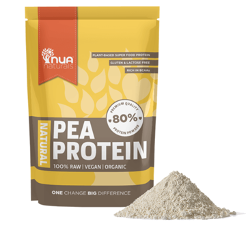
Pea protein is a protein isolate obtained from yellow split peas and contains a rich profile of amino acids including all essential amino acids. It is especially high in lysine, yet a bit low in methionine. Compared to other plant-based proteins, pea protein is easier to digest as it also contains starches, fibres and many micronutrients. Besides, pea protein provokes fewer allergic reactions, since it does not contain gluten, soy and dairy. One serving of 10 grams contains about 8 grams of protein and can be used in smoothies, juices and shakes or for baking.
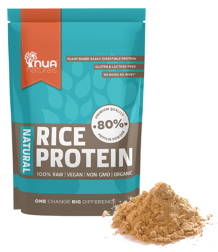
Rice protein is derived from brown rice and contains all essential amino acids. It is mainly high in the sulfur containing amino acids (cysteine & methionine), while quite low in lysine. Therefore, rice and pea protein can be excellently used to complement each other. Rice protein is also gluten, soy and dairy free. One serving of 10 grams contains about 8 grams of protein. Its flavour is less bitter and more sweet than other plant-based proteins, which makes it very suitable for blending into smoothies, juices and shakes. Further, it can be used in protein bars or for baking.
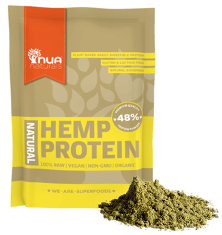
Hemp protein is isolated protein from hemp seeds. It contains all essential amino acids, omega 3 and 6 fatty acids, fibre, iron as well as magnesium. These components are crucial for activities like muscle function, neuronalsignalling, energy regulation and gut health. Compared to other plant-based protein sources, it is a little less easy to digest and a bit lower in non essential, yet critical amino acids. It has other (very) valuable effects due to higher fatty acid and fibre content. One serving sizeof 1 to 2 tablespoons contains about 3 to 6 grams of protein. Its nutty flavour makes it well suited to blend into smoothies and juices, to use for baking, sprinkle over cereal and yogurt or stir into nut butters. NUA Naturals Hemp seeds are also a good source of protein.
- Whole grains
Whole grains including oats, quinoa, brown rice and buckwheat still contain the whole unprocessed grain including the original endosperm, germ, and the bran. They are packed with important nutrients, like protein, vitamins, minerals, fibre, and other healthy plant components. In addition to supplying proteins, promoting satiety, glucose regulation and a healthy body weight. Per 100 grams whole grains contain around 13 grams of protein, depending on the specific product (also serving size and preparation differs per product).
- Seeds
There are many types of seeds, such as chia, sunflower, flax and pumpkin seeds. They are rich in proteins, fibres, omega-3 fatty acids, minerals and antioxidants. This combination benefits blood pressure, as well as blood sugar and cholesterol levels. One serving of 10 grams contains about 2 to 4 grams of protein. Seeds are a tasty addition to porridge, yoghurt, granola, salads and smoothies.
- Nuts
Why should we all be nuts about nuts? Nuts are rich in healthy fats, proteins and fibres. Like seeds, they are good for blood sugar and cholesterol levels. Almonds, cashews, walnuts, hazelnuts and pistachios contain most proteins, with one serving of 25 grams containing about 4.5 to 6.8 grams of protein. A handful of nuts is a great snack, or perfect to use in salads, yoghurt, oatmeal and granola or for baking. Also, they can be consumed in the form of spreads (side note: avoid buying nut spreads that contain palm oil due to its large environmental impact).
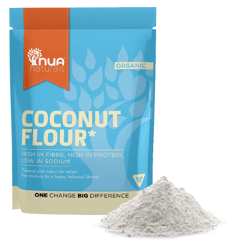
Coconut Flour is simply derived from coconuts and is soy, gluten and dairy free. It is a good and very tasty source of protein and fibre. It does however not contain all essential amino acids, while containing notable levels of saturated fatty acids. Coconut flour consists of about 19 grams of protein per 100 grams of flour. It can be added to yoghurt, oatmeal and shakes or used to thicken sauces or soups. Further, it can be used as a substitute for wheat flour when baking or frying. But note that coconut flour has a lower moisture level and sometimes water needs to be added.
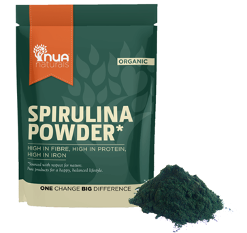
Spirulina comes from cyanobacteria, or so called blue-green algae, containing very high levels of proteins, minerals and vitamins (A, B, C, D & E) including all essential amino acids. It stimulates beneficial antioxidant and anti-inflammatory effects, gut health, muscle health as well as lower blood sugar and cholesterol levels. A serving of 5 to 15 grams contains 3.3 to 9.9 grams of protein. Spirulina can be added to soup, shakes, smoothies and juices or can be used for baking. Take into account that it will add a slight oceanic flavour. Spirulina also comes in tablet form.
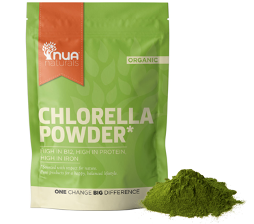 Chlorella is a freshwater single-celled algae rich in essential amino acids, omega-3 fatty acids, fibres, vitamins (B & E), and minerals. It has antioxidant properties and is especially beneficial for your immune system, blood pressure and blood cholesterol levels. The recommended dosage for powder is a rounded teaspoon, which contains about 1.8 grams of protein and can be used in smoothies, juices, salad dressing and soup or for baking. Chlorella also comes in tablet form.
Chlorella is a freshwater single-celled algae rich in essential amino acids, omega-3 fatty acids, fibres, vitamins (B & E), and minerals. It has antioxidant properties and is especially beneficial for your immune system, blood pressure and blood cholesterol levels. The recommended dosage for powder is a rounded teaspoon, which contains about 1.8 grams of protein and can be used in smoothies, juices, salad dressing and soup or for baking. Chlorella also comes in tablet form.
- Legumes
Legumes such as lentils, chickpeas, soy and other beans are excellent sources of protein, fibres and vitamins (fun fact: did you know that peanuts are officially legumes too?). They are generally high in lysine, while low in methionine. Legumes are beneficial for gut health, blood pressure as well as blood cholesterol and sugar level. Further, since they are dried or canned they keep very long resulting in less food waste. A serving of 75 grams (or a handful of peanuts) contains about 4.5 to 7.5 grams of protein depending on the product. They are greatly suited for salads, burgers, falafel, soups, spreads, stews and casseroles.
All in all, it is key to eat a varied, well-balanced diet to obtain the range of these different amino acids and other nutrients. And you know what the best part is? NUA Naturals offers most of these products in its website!
Many thanks to Keeva Loughlin for this great blog.
Keeva is a Masters student in Nutrition & Health; Human Physiology and Health Status
You can also view some of Keeva’s lovely recipe ideas:
